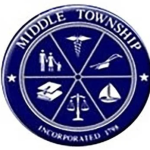At the Oct. 7 meeting of the Cape Issues Committee, the subcommittee assigned to review the facts associated with the question of the Lower Township Municipal Utility Authority (LTMUA) dissolution gave the report of their findings as follows:
The obligations and responsibility would be transferred to Lower Township. The relevant facts were reported in Cape May County Herald’s Oct. 8 edition under the heading, “A Cape Issues Committee Reviews Lower Township Municipal Utility Authority Controversy.”
Based on the subcommittee review, the Cape Issues Committee was unanimous in finding that the LTMUA should be dissolved and liabilities and management would be assumed by Lower Township.
The strongest piece of supporting evidence was found in the review by the N.J. Local Finance Board at which time evidence pro and con was presented by parties representing the LTMUA and the Township of Lower. After full review the Finance Board voted 5-0 in support of the LTMUA dissolution.
The vote was conditional on a trust being established by the township for future surpluses in sewer service to benefit ratepayers who paid into the trust. The N.J. Local Finance Board is a Division of Local Government Services under the N.J. Department of Community Affairs responsible for providing technical and financial assistance in budgeting, financial reporting, joint services, purchasing, and management issues.
The board is specifically responsible for the financial integrity of all local government units. Transcripts of the July 16 initial meeting vetting the issue of LTMUA dissolution and the Aug. 13 final vote meeting can be found on the N.J. Local Finance Board website under Meeting Schedules, transcripts.
They determined that the savings were primarily administrative in nature, being salaries and related benefits as well as consolidation of contract services. These savings were estimated to be approximately $1 million annually. The administrative support and services would be absorbed into the existing township budget and structure.
The Finance Board was satisfied that evidence of provision by the township was made for the absorption of all of the MUA non-administrative (blue-collar) workers with no loss of wage or benefit. Adequate provision was also made by the township for the payment of severance liabilities and uncompensated absences.
Concern had been raised that the LTMUA provides allowance to assist residence ‘hook-ups’ that would be in question if the LTMUA was dissolved. According to township officials, utility programs the township offers have these same benefits including zero-interest loans for low or mid-income residents. Also some support of plumbers’ fees can be available.
The township must assume the outstanding $17.6-million debt of the LTMUA. Sufficient evidence was available to the N.J. Local Finance Board to demonstrate that the township has made provision for the assumption of debt.
The township currently already guarantees the outstanding debt of LTMUA. A necessary condition to prepare for the assumption of the LTMUA debt liability is to achieve a ‘super majority vote’ greater than 75 percent of the council. The previous vote of Sept. 15 was not successful with the result of 3-2 where a 4-1 vote was required.
The township has a one-year window to accomplish the necessary council votes to initiate the MUA dissolution process. We trust the best solution will be reached to benefit the current and future rate payers of the Lower Township sewer utility.
Cape Issues began in March 2008 as a non-partisan group to focus public attending on issues to improve Cape May County. Founding members were Fred Coldren, former Cape May County Herald editor and former Cape May City manager; Tom Flud, former North Wildwood administrator, and Art Hall, Herald publisher.
Burleigh – Middle Township is going in the wrong direction. Our taxes keep going up because of too much development. The mayor & committee need to stop acting like their job is keep builders, developers and…








